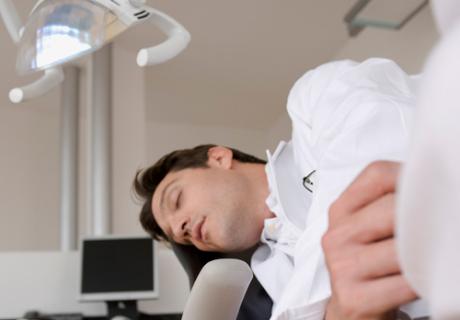Study Indicates Sleep Could Help with Job Stress, Unhealthy Eating
There are few feelings more satisfying than being well rested. But according to a new study, a full and consistent sleep schedule does wonders for overall health and productivity. Continue below to find out more about how a good night's rest can help you and your practice.

A study found that participants who slept poorly may have less self control when it comes to food choices.
If you needed an excuse to rest more, this one will do it. According to a new study published in the Journal of Applied Psychology, a good night’s sleep can do more than help you feel rested.
The study, which is one of the first of its kind, shows that good sleep can help workers who experience high levels of job stress manage unhealthy eating habits by reinforcing healthy behaviors throughout the day and allowing individuals to handle job stress more effectively.
The study involved a review of two previous studies of 235 workers in China. While they were not dentists, these workers were employed in fields that typically involve high-stress environments: information technology and telephone call centers. In both cases, stress experienced by employees was linked to negative attitudes and moods on the job, which in turn was linked to unhealthy eating patterns after the workday finished.
“We found that employees who have a stressful workday tend to bring their negative feelings from the workplace to the dinner table, as manifested in eating more than usual and opting for more junk food instead of healthy food,” Chu-Hsiang Chang, study co-author, says. “However, another key finding showed how sleep helped people deal with their stressful eating after work. When workers slept better the night before, they tended to eat better when they experienced stress the next day."
To explain this outcome, the study authors proposed two explanations. First, workers in stressful occupations may use eating to relieve and control negative feelings and moods. Also, highly stressed individuals could have diminished self-control, which could lead to more unhealthy eating patterns.
Good sleep was shown to help individuals refresh and rejuvenate themselves, which in turn allows them to better deal with stress. This could help people in stressful occupations become less likely to engage in unhealthy eating. The study authors note that companies should consider both sleep-awareness training and flexible scheduling for employees to help address the problem of high stress levels and unhealthy eating. They add that companies could also offer food-related job perks to increase rates of healthy eating among employees.
ACTIVA BioACTIVE Bulk Flow Marks Pulpdent’s First Major Product Release in 4 Years
December 12th 2024Next-generation bulk-fill dental restorative raises the standard of care for bulk-fill procedures by providing natural remineralization support, while also overcoming current bulk-fill limitations.